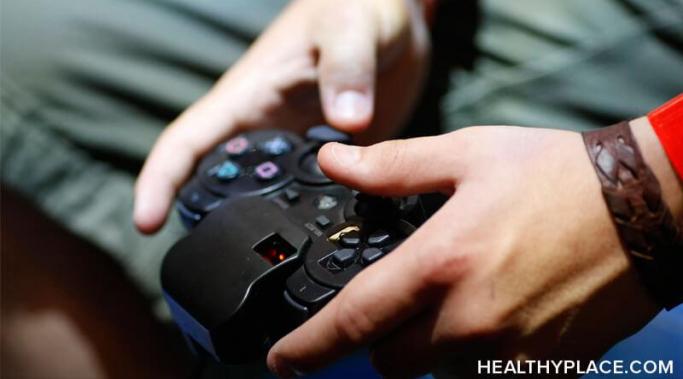Blogs
Dehumanizing people with addiction is something many people do without thinking about it. For example, when someone says “addict,” there are probably a few images that readily come to mind and descriptors to go along with those images — crackhead, drunkard, nasty, degenerate, the list goes on. This is the stigma of mental illness at play as preconceived notions and dated ideas of what it means to have an addiction take over our perception. When we let that happen, we’re dehumanizing people with addiction. This happens with all kinds of addiction, too.
Attention-deficit/hyperactivity disorder (ADHD) and video games: How much screen time do you allow your child with ADHD? I ask because parents of children with ADHD have a love/hate relationship with video games. They can be a huge motivator for our kids. They provide us with rare quiet times. Yet, we're often shamed based on how much screen time our kids get. Using screens is often viewed as poor parenting. I've even been told video games cause my son's ADHD (Stigma Against Parents Who Raise a Child with Mental Illness). These days, asking me about my child's screen time will elicit the same response as asking me about my weight. I will lie about it, then I'll go home and cry.
Unfortunately, borderline and relationships just don't seem to go hand in hand. Everywhere you look there's talk of how it just won't work and your constant fear of abandonment will only leave you controlling and dependent. Sometimes all you can feel is alone. Relationships with borderline are tough.
Myths about borderline personality disorder abound. Are we “crazy?” Are we “impossible?” Are we “doomed?” One of the main reasons I wanted to start writing and blogging about borderline personality disorder (BPD) was to address the stigma I’ve encountered as a woman living with this diagnosis out in the world. Today, I thought I would break down three of the most common myths about borderline personality disorder (BPD) I’ve encountered and my thoughts (as well as science’s) about each of them.
Using proper communication methods in relationships at work and home are important, but, for people with anxiety, communication can be very difficult. Many people either do not communicate enough or primarily choose to use one method--either verbal or written communication. However, both written words and verbal speech are very important to maintain relationships. If you struggle with proper communication methods, read on to learn about when to talk and when to write and how each can affect relationships.
Did you know that there are ways to improve confidence in less than five minutes? Whether you are feeling anxious about a meeting, worried about a test or feel down in the dumps, these tricks have helped me shift my mind from fearful to feeling in control and they take just a minute or two of your time. These are ways to improve confidence.
My name is Jenny Capper, and I am now co-authoring Mental Health for the Digital Generation. I am so honored to be writing for HealthyPlace. I have been struggling with major depression and anxiety for 12 years. It is my hope that sharing my experience with mental illness will help you or your loved one feel understood and not alone.
I’m sorry to say I have found bipolar disorder requires a fake smile pretty much on demand, every day. We all have fake smiles for different situations but mine need to be at the ready, at all times, because I use them more than others. Fake smiles with bipolar disorder suck, but what can I say, I need them.
Staying sober with schizophrenia is important to me. Over a year ago, I quit drinking alcohol. I quit because it triggered my schizoaffective depression. I would get hypomanic and I would crash into a depressed mood when the wine wore off. I basically just gave it up one day and never looked back, but I do miss it from time to time. Here’s how I cope with staying sober with schizophrenia.









I believe she will only be able to rid herself of her demons, and hopefully her BPD as well, when she's ready to confront the abuse of her father. If she can put the blame where it belongs, she may stop projecting that victim/perpetrator cycle on the present men in her life. These demons are a metaphor for the purgatory she has created for herself. That reality has consequences in the real world, but it need not be real in the tangible sense. Exorcising her demons will require the expenditure of real physical energy and probably the destruction of aspects of her personality. If this ever happens, and it's possible but not probable, then these demons will evaporate. They are only as real as one's personality is real. In short, reality is not the question, it's what you make of the things you feel to be real.